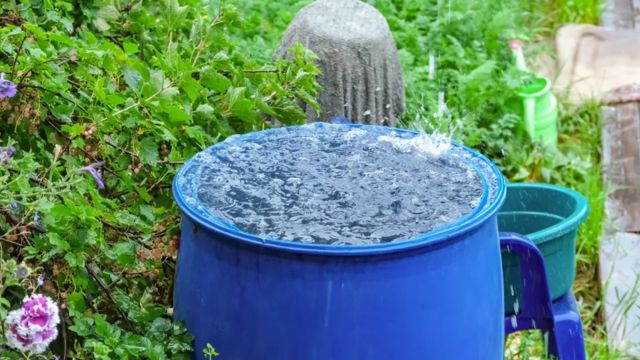Understanding Michigan’s Rainwater Laws: Is It A Collection Legal?
DEBARYLIFE – We’ve had quite a bit of rain over the last two weeks, which has helped.
I predict that some individuals will be collecting rainwater whenever they get the chance, given the dearth of rain we had last spring and summer. What—wait? Rainwater can indeed be collected.
What Is The Harvesting Of Rainwater?
Rainwater harvesting is the process of gathering rainwater for various applications. It entails collecting rainfall and putting it in storage tanks or barrels.
As stated in Today’s Homeowner, a lot of people irrigate their gardens, potted plants, and sometimes even their entire yards with rainwater. Although some studies warn against it, some homeowners even filter, boil, and drink their water. It’s an efficient approach to handle rainwater and preserve water.

It may surprise you to learn that certain states discourage the collection of rainfall.
SEE MORE – Michigan’s Forgotten Law! There Is The ‘No Eating In Cars’ Policy, And Be Aware From Penalty
Because of worries about microorganisms, potential contaminants, and even the storage techniques used, several other jurisdictions forbid the storing and preserving of rainwater for possible future use. Gathering rainwater may even require a permit in certain situations.
Is It Legal In Michigan To Harvest Rainwater?
Since there are no state laws that expressly address rainwater collection, the answer is yes, it is allowed to do so in Michigan. On the other hand, regulations about rainwater harvesting may differ throughout Michigan cities or regions.
Rainwater harvesting may seem like a lot of work for a little financial gain, but it can help reduce your water cost.











